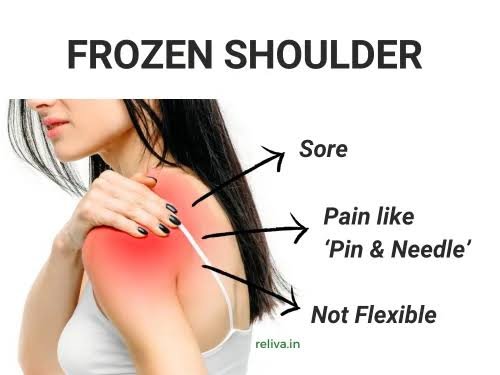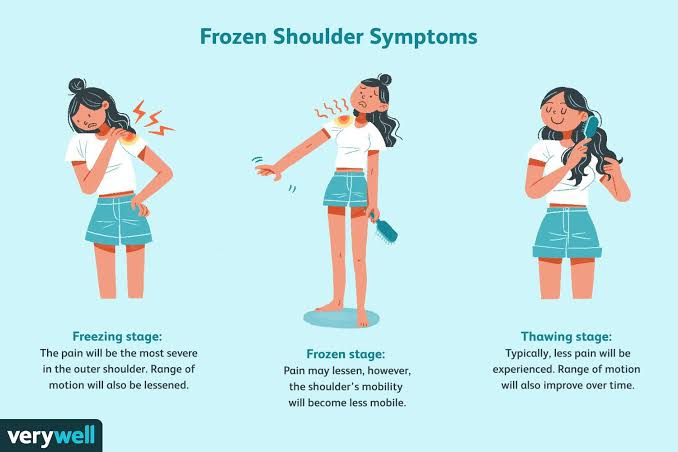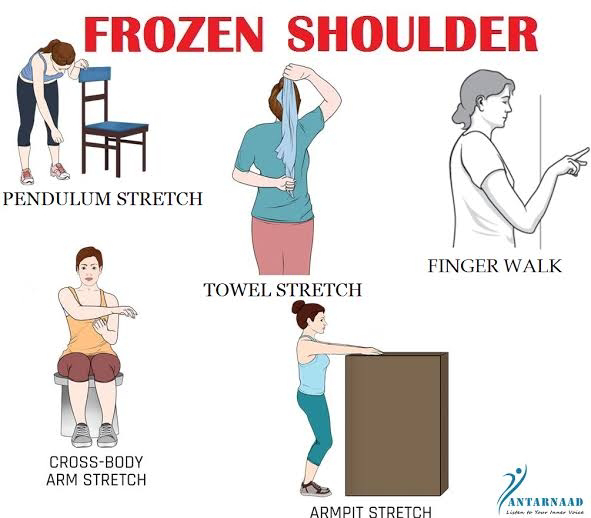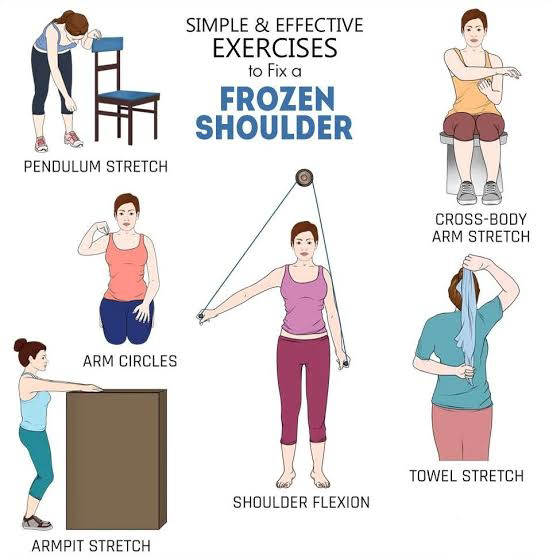Frozen shoulder

Frozen shoulder, medically known as *adhesive capsulitis*, is a condition that causes stiffness, pain, and limited range of motion in the shoulder joint. It typically develops gradually and worsens over time before eventually improving, but the process can take months or even years.

Symptoms of Frozen Shoulder
The hallmark of frozen shoulder is the restricted movement in the shoulder joint. The condition generally progresses through three stages:

1. Freezing Stage: In this stage, the shoulder starts to become painful and stiff. The range of motion decreases, and any shoulder movement causes pain. This phase can last from 6 weeks to 9 months.
2. Frozen Stage: Pain may begin to diminish during this stage, but the stiffness remains. The shoulder becomes more difficult to move, and daily tasks like dressing or lifting become challenging. This phase can last from 4 to 12 months.
3. Thawing Stage: Gradually, the shoulder’s range of motion begins to improve, and the stiffness subsides. Full recovery may take anywhere from 6 months to 2 years.
Causes of Frozen Shoulder
While the exact cause of frozen shoulder isn’t fully understood, it often occurs after an injury or surgery that leads to immobility of the shoulder joint. Risk factors include:
– Age and Gender: It is most common in people aged 40 to 60 and tends to affect more women than men. Any injury or surgery that limits shoulder movement can increase the risk.
– Underlying Health Conditions: People with diabetes, thyroid disorders, or cardiovascular disease are more prone to developing frozen shoulder.
Treatment Options
Frozen shoulder can often resolve on its own, but treatment helps speed recovery and manage symptoms:
1. Physical Therapy: A key treatment, exercises help restore range of motion and relieve stiffness. Stretching and strengthening activities are typically recommended by a physical therapist.

2. Pain Management: Over-the-counter pain relievers like ibuprofen or acetaminophen can help manage pain. Corticosteroid injections may also be used to reduce inflammation.
3. Heat and Cold Therapy: Applying heat or cold packs can alleviate pain and reduce stiffness.

4. Surgery: In rare cases, if other treatments don’t provide relief, surgery to release tight tissues around the shoulder may be necessary.
Preventing Frozen Shoulder
To reduce the risk of frozen shoulder, keeping your shoulder mobile after an injury or surgery is crucial. Light stretching exercises and regular movement can help prevent stiffness from setting in.
Conclusion
Frozen shoulder can be a frustrating and painful condition, but with the right treatment and patience, full recovery is possible. If you’re experiencing shoulder pain or stiffness that isn’t improving, it’s important to consult a healthcare professional for proper diagnosis and treatment.

